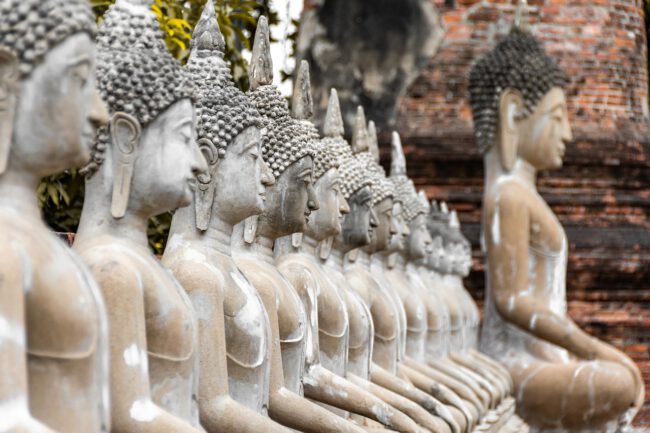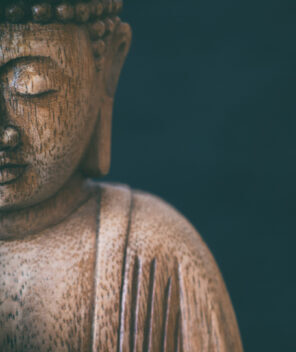THURSDAY, JANUARY 28: A Gregorian New Year was observed by most of the world just a few weeks ago, but for Mahayana Buddhists, the New Year comes today: on the first full moon day of January. Though customs and moon sightings vary by region, devotees in Mahayana countries—such as Tibet, Korea, Mongolia, China, Japan, Nepal, Vietnam and Indonesia—mark the New Year as a time of both meditation and gatherings.
Did you know? The Mahayana tradition began in India and claims a majority of Buddhist practitioners—the largest tradition within Buddhism today. Traditions within Mahayana include Zen, Chinese Chan, Pure Land, Tiantai, Nichiren and Vajrayana.
Though Buddhism stresses the importance of frequent and even daily self-reflection, the New Year stands apart as celebrated with visits among family and friends (though many may be virtual this year) and the release of old karma. In many regions, statues of Buddha are bathed in a sacred ceremony. Having cleaned their homes in preparation for the New Year, many homes host a feast of traditional foods and the exchange of well wishes.
A quieter, more solemn custom involves the printing of past sins onto slips of paper, then casting them into a fire in attempts to free oneself from the negative consequences of bad karma and to garner a fresh start.
BUDDHISM TODAY: STATS AND FACTS
- Buddhists make up approximately 1 percent of the adult population in the United States, and about two-thirds of U.S. Buddhists are Asian Americans, according to Pew Research Center estimates and an article released in 2019.
- Mahayana Buddhism is commonly practiced in Northeast Asia, and it is common for local customs to blend with religious customs. In the United States, Mahayana Buddhism is more prevalent among immigrants from countries where Buddhism is practiced than in the general population.
- Mahayana Buddhists believe that adherents to Buddhism—not just monks—are capable of achieving enlightenment. A goal of Mahayana Buddhism is to serve others and to assist others in reaching enlightenment, too.

